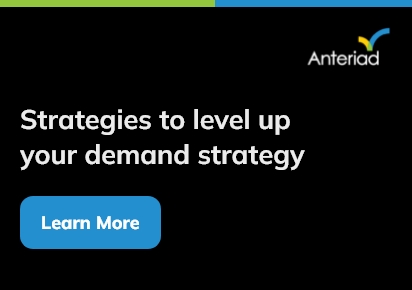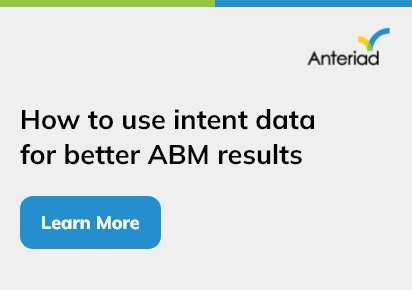If you’re looking to fast-track your career in BI, earning the right certification can make a real difference. Below, I’ve pulled together some of the most respected credentials in the field, why they matter, and how to pick what’s right for you.
Why Certifications Matter
In a crowded job market, a business intelligence certification signals two things: you’ve invested in your craft, and you’ve got some external validation of your skills.
• The industry site CIO reports that in BI roles, certifications may boost your salary and help you stand out
• The credential Certified Business Intelligence Professional (CBIP) shows a higher‐than‐average salary for BI professionals
That said, a certification is not a guarantee of a job. Your experience, portfolio, and how you apply your skills, those matter as much. But the right credential can tilt the odds in your favour.
Top BI Certifications to Consider
Here are some of the heavy hitters, each with slightly different focus, prerequisites and benefits.
1. CBIP (Certified Business Intelligence Professional)
Offered by The Data Warehouse Institute (TDWI), this is a vendor‐neutral credential for BI/analytics professionals.
Why it’s strong: It signals you understand the full lifecycle of BI/analytics (data warehousing, modelling, governance, etc), not just one tool.
Good for: Mid‐career professionals who have a few years of BI experience and want to move into architecture, leadership or high‐impact analytics roles.
Things to check: There are recommended experience levels and domains you might need to specialise in.
2. Microsoft Certified: Power BI Data Analyst Associate
This one from Microsoft validates your ability to work with Power BI, designing data models, visualising insights and generating dashboards.
Why it’s strong: Power BI is widely used, and having a tool‐specific certificate shows you’re capable in that ecosystem.
Good for: Analysts, BI developers, and reporting specialists who primarily use or need to demonstrate skills in Power BI.
Things to check: It’s tool-specific (so if your organisation uses Tableau, Qlik or another platform, you might want complementary credentials).
3. Tool‐specific certifications (Tableau, Qlik, SAS, etc.)
If you’re working with or targeting a particular BI/visualisation stack, tool‐specific certifications can boost your credibility. Examples: Tableau Desktop Certified Professional, Qlik Sense Business Analyst Certification, SAS Certified Specialist: Visual Business Analytics.
Why they’re strong: If an employer uses that tool, they’ll recognise your expertise, and it may speed up onboarding.
Good for: BI report developers, dashboards/visualisation specialists, tool‐centric roles.
Things to check: These can be less broad in focus; you might still need to round out your foundation (data modelling, warehousing, business acumen).
4. Certified Analytics Professional (CAP)
This credential is more analytics/insight‐focused rather than purely BI tool/reporting.
Why it’s strong: It shows you can not only extract and visualise data but also derive insight and guide decision‐making.
Good for: BI professionals wanting to move into analytics strategy, decision support, and data science adjacent roles.
Things to check: It may require more experience and a stronger foundation in analytics/statistics.
How to Pick the Right Certification for You
Here are some questions to ask yourself as you choose:
• What’s your current role, and where do you want to go?
If you’re starting in BI reporting and dashboards, a tool‐specific credential (Power BI, Tableau) might be a good first step. If you’re eyeing senior roles or BI architecture/strategy, a broad credential like CBIP or CAP may make more sense.
• What tools does your target job use (or your current employer uses)?
If your organisation uses Power BI, picking the Microsoft certification aligns well. If it uses Tableau or Qlik, go there instead. Certifications that match the actual environment add visible value.
• How much experience do you have?
Some credentials assume several years of BI/analytics experience. If you’re newer to the field, start with something accessible and build up.
• What’s the cost/effort?
Certification costs can include exam fees, preparation courses, and study time. Make sure you’re ready to commit (both time and money) so you get full value.
• What else will you learn?
The certification shouldn’t just be about passing an exam. The process should force you to strengthen your fundamentals (data modelling, governance, visualisation principles, business insight); these are transferable, tool‐agnostic skills.
Tips to Maximise the Value of Your Certification
• Do real projects during your study.
Theory is great, but showing you’ve applied it (e.g., built dashboards, created a data warehouse model, improved a business process with insight) adds weight.
• Link certification to business outcomes.
When you talk about your credentials in your resume or interview, tie it to actual impact: “Because of my certification, I redesigned the dashboard to cut decision time by 30%”, for example.
• Keep your skills fresh and renew them as needed.
Many credentials have renewal requirements or get outdated as tools evolve. Make sure you stay current.
• Don’t rely on certification alone.
Some folks on forums warn:
“Certifications are increasingly being gamed… the more people who are ‘certified’ experts in their products, the larger user base they must sell to when people move around.”
So, use the certification as part of your broader professional story, show experience, curiosity, T-shaped skills.
A Path You Might Follow
Here’s a sample progression you might consider:
Solidify your foundation – Learn SQL, understand data warehousing basics, pick one BI tool and build dashboards in your spare time.
Earn a tool-specific certification – For example, Microsoft Power BI or Tableau. Demonstrate you can deliver reports and visualisations.
Aim for a broader credential – After gaining experience, pursue something like CBIP or CAP to show you govern BI solutions and derive strategic insight.
Continue expanding – Maybe add certifications in advanced analytics, cloud data platforms, and data engineering. Your BI career becomes part of a broader data ecosystem.
Final Word
If I had to summarise it: choose a certification that aligns with your current role and future goals, make sure you truly learn through the process, and then let your work speak for itself. The credential isn’t the end goal; what you do with it is.
Also read: 6 Best Business Intelligence Tools You Must Try Now



